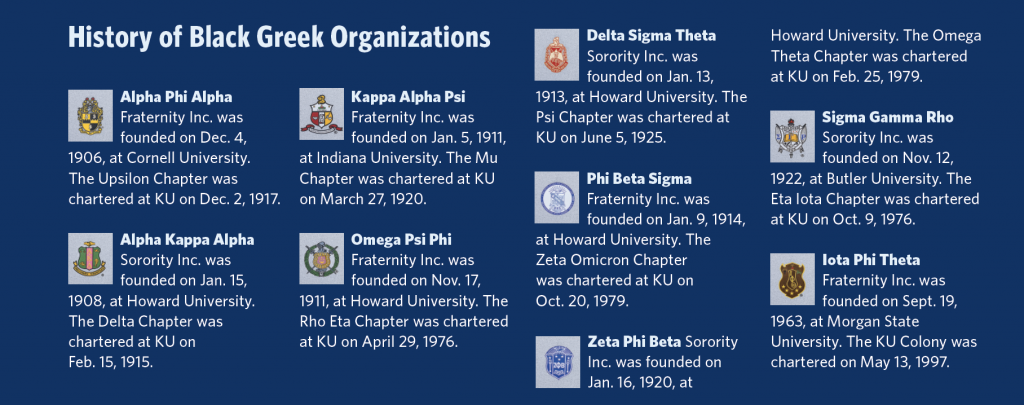A Divine Celebration
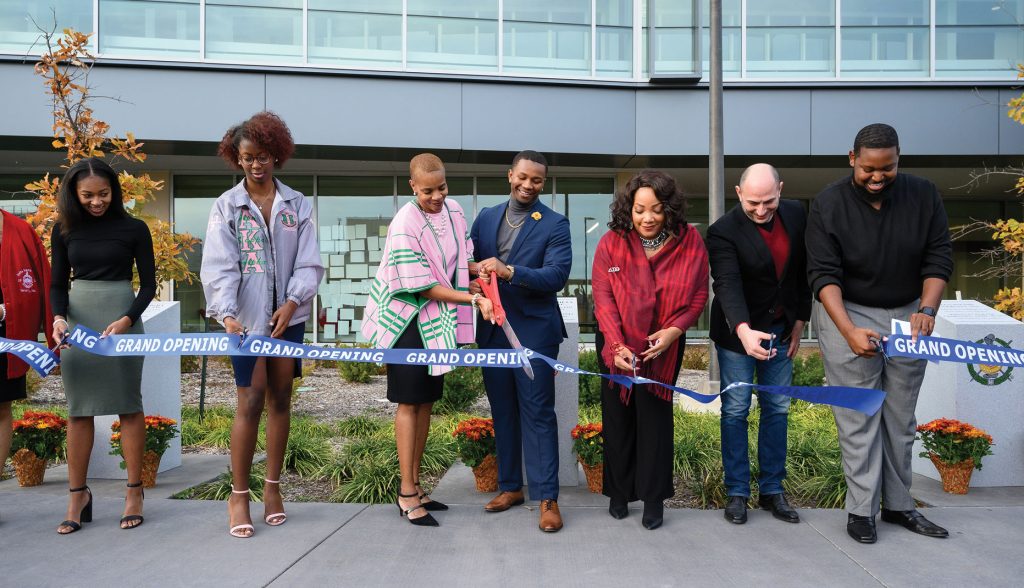
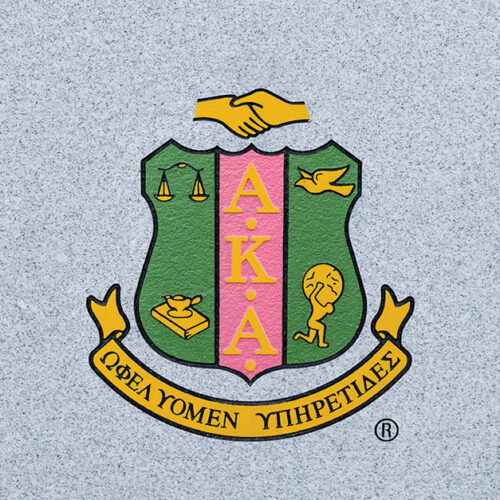
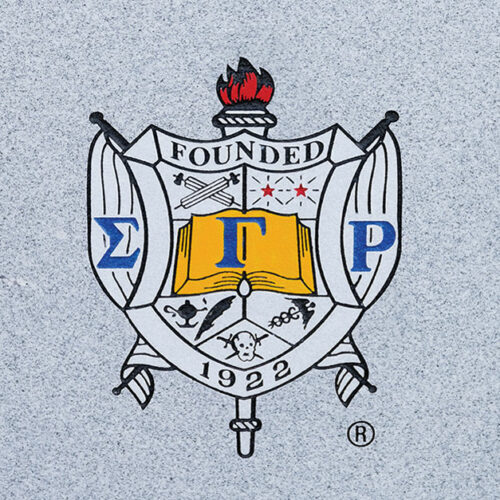
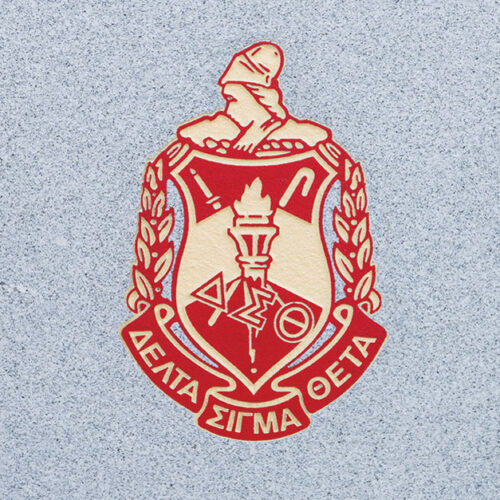
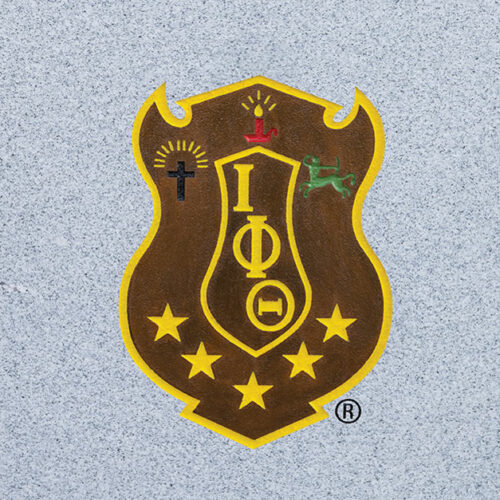
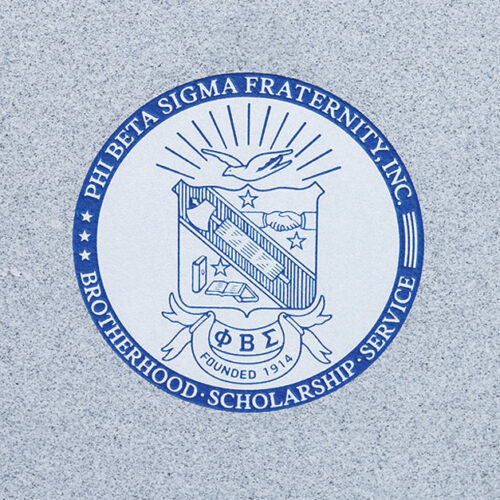
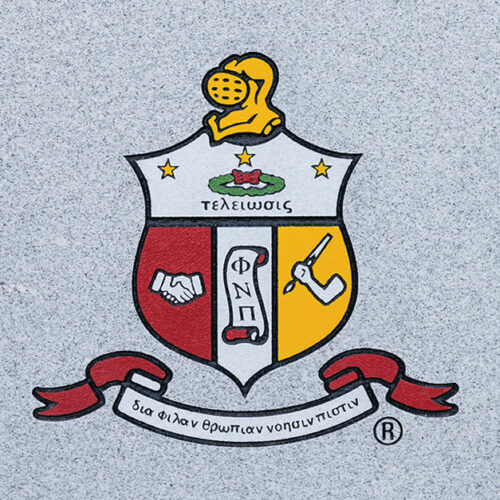
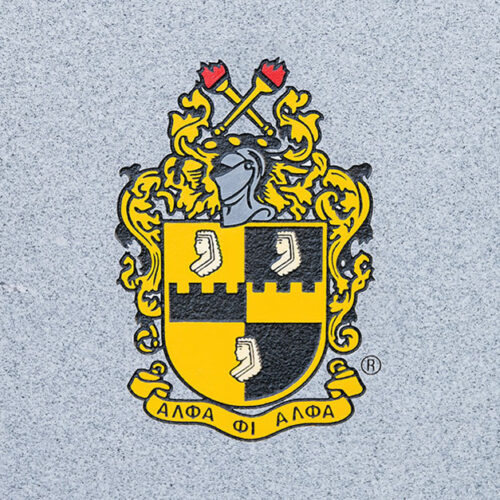
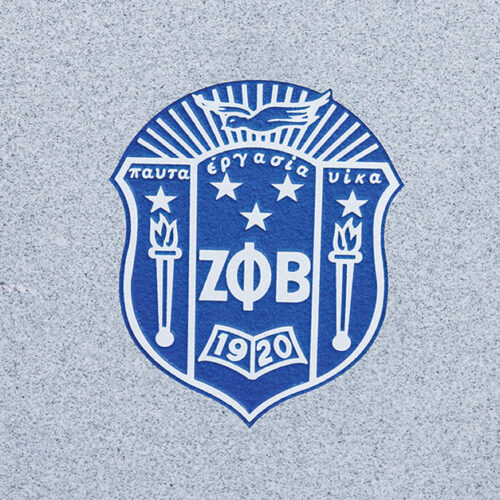
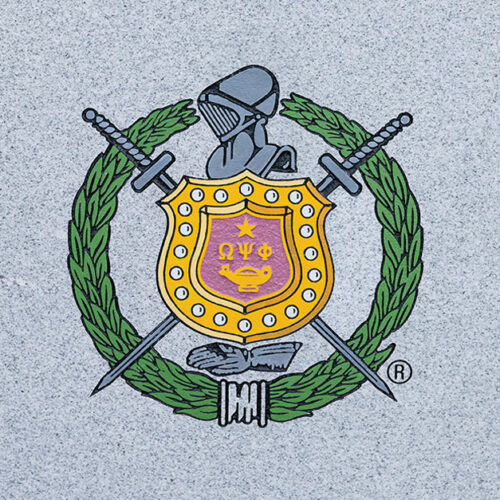
After welcoming the spirited group of Jayhawks gathered Oct. 23 in the Burge Union courtyard for the dedication of the Divine Nine Plaza, Tammara Durham cast a knowing glance at the students before her.
“In founding order,” she began, before hesitating to issue a playful warning, “I’m going to do a brief pause. Brief. Do you hear my words?”
The crowd erupted in laughter as Durham, EdD’09, vice provost for student affairs, launched into a roll call, announcing the names of each historically black fraternity and sorority in the National Pan-Hellenic Council (NPHC), known affectionately as the Divine Nine.
“Alpha Phi Alpha Fraternity Inc.,” Durham declared, summoning a series of whoops and hollers from an enthusiastic group of young men.
“I said brief,” she gently reminded them, much to the delight of the crowd.
“Alpha Kappa Alpha Sorority Inc.” she continued, setting off a high-pitched squeal from a cluster of young women.
“I see you,” answered Durham, who was dressed in the sorority’s signature salmon pink and apple green colors, the organization’s crest emblazoned on the front of her sweater wrap.
She went on to recite the names of the remaining seven organizations, giving members of each fraternity and sorority ample time to respond. The students eagerly obliged, thrilled to announce their presence and celebrate a project that came to life with the help of more than 200 donors and a dedicated team of Jayhawks, all of whom wanted to ensure that the University’s historically black Greek organizations received a permanent home on campus.
Nestled between the Burge Union and the Integrated Science Building in the new Central District, the Divine Nine Plaza features nine stone monuments—one for each of the fraternities and sororities in the council. The pedestals, which include each organization’s crest, founding details and charter date at KU, were completed in late summer 2019, after an online LaunchKU campaign raised more than $53,000 to fund the project.
“What you see before you started with students,” Durham told the lively crowd, which also included alumni, faculty and staff. “This campaign started because they wanted a space dedicated to their organizations, its members and the rich history here at KU.”
Of the nine fraternities and sororities, all of which were founded during a time of racial segregation and oppression, five are currently active on campus: Alpha Kappa Alpha Sorority Inc., Alpha Phi Alpha Fraternity Inc., Delta Sigma Theta Sorority Inc., Kappa Alpha Psi Fraternity Inc. and Zeta Phi Beta Sorority Inc.
Alpha Kappa Alpha, chartered in 1915 as the first black Greek organization at KU, and Alpha Phi Alpha, chartered in 1917, recently celebrated their centennials, and Kappa Alpha Psi will mark 100 years at KU in 2020. At one point all of the black fraternities and sororities had KU chapters.
“These plots are reminders of history and commitment,” said Carl Lejuez, KU’s interim provost and executive vice chancellor, who also spoke at the event. “The Divine Nine Plaza creates a permanent symbol and raises the profile of the involvement and work that’s been done at KU. Most importantly, it sets the stage for what will follow.”
After the ribbon-cutting, as students and alumni snapped photos and celebrated the momentous occasion with warm embraces and enthusiastic high fives, Dan Leong, c’98, g’00, a member of Phi Beta Sigma who traveled from Topeka for the dedication, reflected on the monuments before him.
“It’s a lot of tradition here and it’s good to see,” he said. “The University has always supported our organizations and it’s really good to see this physical testament. It’s really special.”
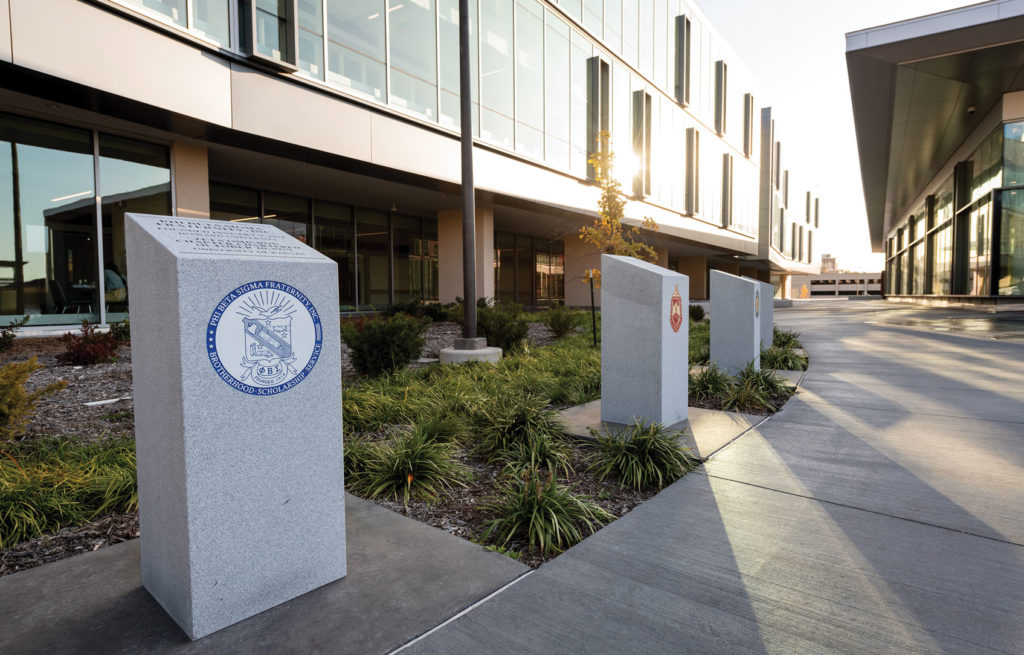
It didn’t take long for Tyler Allen to realize that the Greek organization she joined was very different from the larger, predominantly white fraternities and sororities at KU, not only in size and structure but also in terms of the group’s visibility on campus. The graduate student from Denver, who’s earning her master’s degree in African American studies and museum studies, became a member of Zeta Phi Beta as a sophomore, hoping to connect with other women with similar backgrounds and interests. But she grew frustrated with how some students viewed her sorority and other black Greek organizations at KU.
“There have been times that I, and other members of my chapter or other NPHC chapters, have been questioned about our organizations being real Greek-letter organizations,” says Allen, c’18. “We don’t operate out of houses, so that was somehow tied to our lack of credibility on campus.”
When she became president of NPHC in 2017, during her junior year, Allen was determined to elevate the council’s groups in the eyes of her peers and the University. She met with other members of the black fraternities and sororities to discuss how they could increase their visibility on campus in a lasting, meaningful way.
“We have a room in the Kansas Union,” Allen says, referring to the Divine Nine Room on the sixth floor, which was dedicated in 2014, “and the Delta chapter of Alpha Kappa Alpha has a bench. But I felt like we needed more and other members of the organizations felt the same.”
The students agreed to construct plots, which in recent years have been built on several college campuses, including Wake Forest University and the University of Iowa, as a symbolic way to enhance the presence of black Greek organizations at KU.
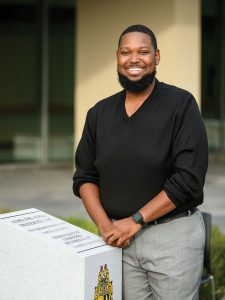
Allen enlisted the help of Darius Jones, who coordinated sorority and fraternity life at KU before leaving in 2018 to serve the University of Texas in a similar role. “I was very hesitant at first” he recalls, “because I’ve heard about other institutions that have tried this and it’s taken years. I just didn’t know if it was really going to happen. But the students were adamant about it.”
Jones, who joined Alpha Phi Alpha as an undergraduate at Texas State University, connected the students with campus leaders who could help facilitate the project, including staff from KU Endowment and KU Facilities Planning & Development. He also encouraged discussions with Durham, who presented the idea to Chancellor Doug Girod, emphasizing the impact historically black Greek organizations have had at KU.
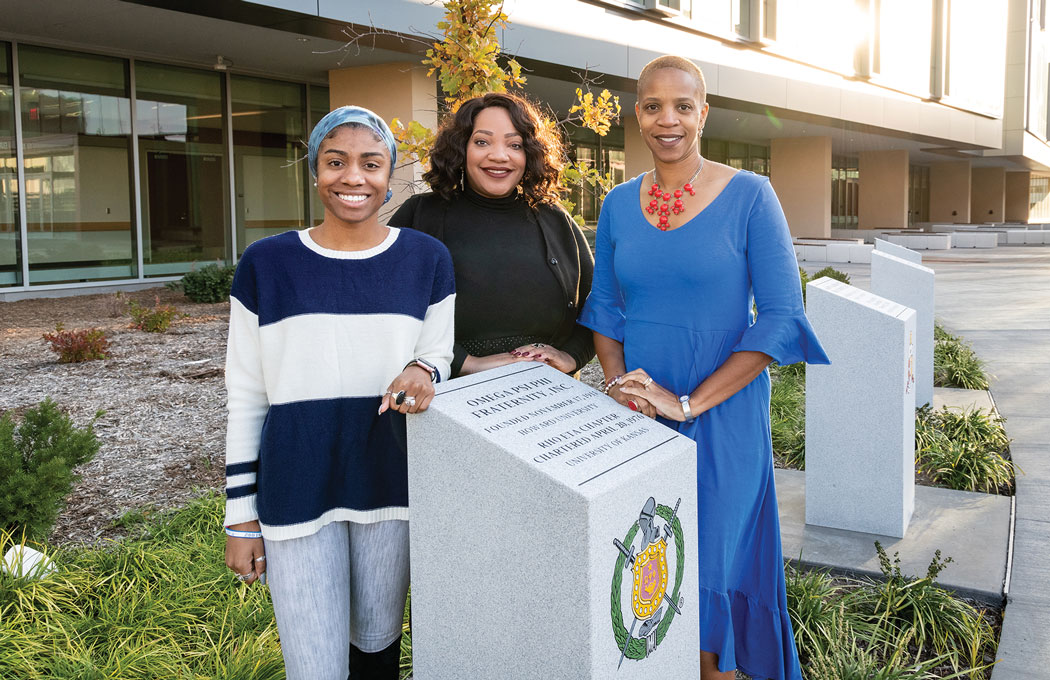
“He was on board from the beginning,” says Durham, adding that the chancellor insisted on keeping the Divine Nine Room in the Union as well. “To be honest, I may have only had to have one conversation with him.”
With the University’s support, students hammered out a budget, design, timeline and communications plan. The only factor that remained uncertain was the location.
“We walked around campus to see what would be the most visible, accessible space that wouldn’t get overlooked,” Jones says. “They were doing construction in the Central District and we knew more freshmen were going to be in that space. We knew it would get a lot of traffic. That was the spot we wanted it to be in.”
With KU Endowment’s assistance, the students launched an online, 30-day fundraising campaign on April 9, 2018, setting a goal of $50,000 and creating a video and other materials to promote the project. Donations rolled in, ranging from $10 to $8,000, from students, alumni, community members and campus units, including Greek organizations in the Interfraternity Council and Panhellenic Association.
By the time the campaign was scheduled to end in May, the students had raised more than half the funds needed and were granted an extension to continue their efforts. On June 18, they surpassed their goal, raising a total of $53,929 from 205 donors to support the creation of the Divine Nine Plaza. The extra funds were allocated for NPHC scholarships.
“I was very happy and thankful,” says Allen, who was studying abroad during the fundraising campaign and relied on NPHC’s new leadership to keep her posted on the project. “I felt like I had accomplished my goal as president. But I can’t take all the credit and I won’t. I’m thankful for those who continued to work once I was gone, because if they wouldn’t have, I don’t know where the project would have gone.”
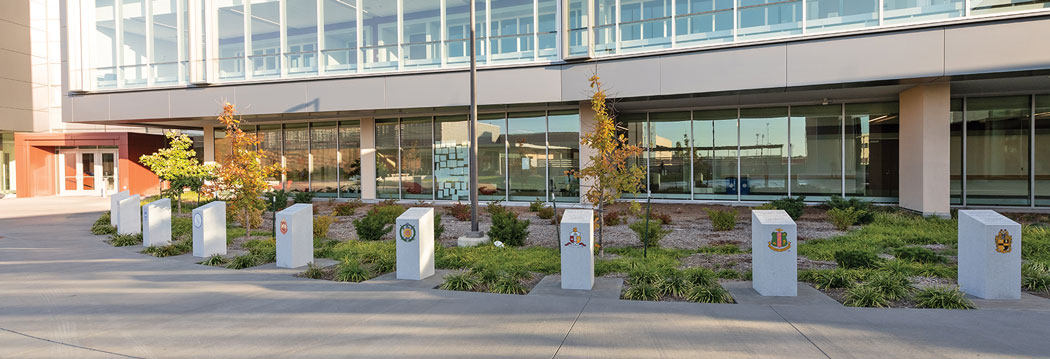
Despite a few construction delays, the Divine Nine Plaza was completed with the start of the fall semester, just in time for the University’s 107th Homecoming celebration and the Alumni Association’s Black Alumni Network’s biennial reunion.
Nikita Haynie, a Delta Sigma Theta who took over for Jones as assistant director of sorority and fraternity life and adviser to KU’s NPHC and Multicultural Greek Council, believes the new plaza will have a strong impact on current students as well as black alumni, many of whom returned to campus for the reunion.
“It sends the message that there’s a place for you here,” she says, emphasizing that for the dedicated group of students who advocated for the Divine Nine Plaza, “It makes them feel like they matter, that they belong here. It just gives them a sense of pride. And when you think about past Jayhawks, alumni, who were a part of these chapters … they’re able to come back and see a piece of their undergraduate experience. I think that just sends a powerful message across the board.”
Carla Lutcher, a senior from San Jose, California, and a member of Delta Sigma Theta, attended the plaza’s dedication and says of the black Greek organizations, “We’re all about community service, sisterhood, brotherhood and overall community, so having something to represent that and represent that we are here is a big deal.”
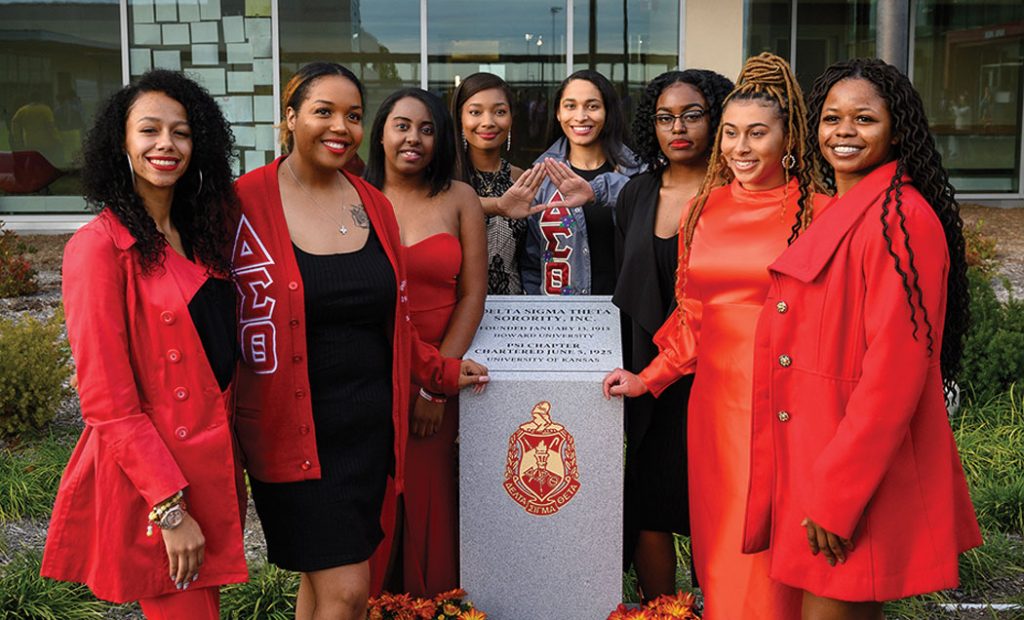
Durham anticipates the new plaza will serve as a valuable recruitment tool as well. “Imagine you’re a person of color and you’re coming on campus for a tour,” she says, “and you see a granite, permanent place dedicated to a sorority or fraternity your mother or father or aunt or grandmother or cousin or someone in your family may have been a member of. You can see yourself here. You can see that this is a place for all students.”
While the creation of the plaza is a prime example of KU’s commitment to foster a diverse and inclusive environment for all Jayhawks, University leaders know more can be done in the years ahead.
“KU has often touted itself as a university that has tried to do the right thing when it comes to race,” Lejuez says. “We’ve talked about that we’ve never denied admission based on race. These are admirable things, but we have a lot of work to do. We know that Lawrence, and sometimes KU specifically, haven’t been uniformly welcoming and supportive.
“The Divine Nine are symbols of what people can do so that we move past areas of division and that lack of support, and move past outright racism, implicit biases and other things that our students, faculty and staff have to deal with every day at the University.”
Haynie, who for the past year has worked closely with students on the NPHC executive board and has witnessed their excitement to build a permanent, dedicated space on campus, believes that the new plaza will not only honor the University’s rich history with black Greek organizations but also will help marginalized and underrepresented students feel more welcome at KU.
“I think KU is unique in that they really do listen to the students and what the students want,” she says. “I do believe that if students advocate to the right people, have the right conversations and put that out into the campus atmosphere, they can make anything happen. I think the most important message is that your voice matters.”
The Divine Nine Plaza is a powerful reminder that these student voices—and the voices of generations of Jayhawks before them—do, in fact, matter. And, even without a rousing roll call, they will forever be present and accounted for.
